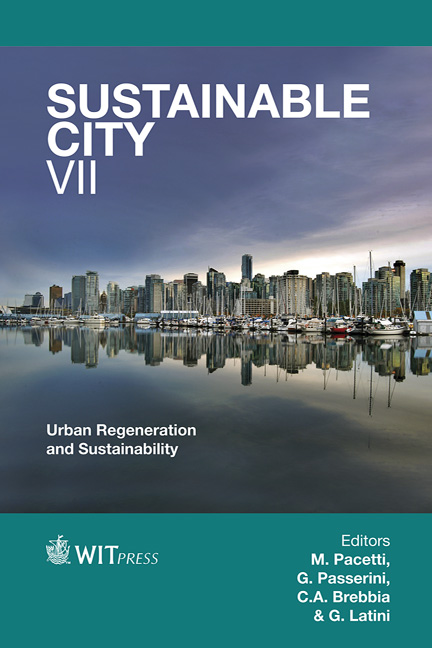The Ethical Dimension Of Islamic Urban Architectural Heritage As Sustainable Design
Price
Free (open access)
Transaction
Volume
155
Pages
12
Page Range
917 - 928
Published
2012
Size
541 kb
Paper DOI
10.2495/SC120772
Copyright
WIT Press
Author(s)
Dr. B. Belmessaoud-Boukhalfa
Abstract
The paper aims to contribute to the identification of the nature and the role of the ethical dimension of an urban form as an important determinant of design. Commonly, ethics is the most important of the intangible means to attain sustainability. Sustainability has to do firstly with intangible means of human needs and its comprehensive relationship with them. Environmental Ethics is the first theme in critical theory that aims to develop a less antagonist relationship with nature. In urban design, the main function of ethics is to prevent spatial dysfunctions due to the misuse of space in order to resolve social conflicts for human well-being. A practitioner s response to the various ethical dilemmas will not only need to be conditioned by the codes of conduct of the professional institution but also through the explicit recognition of the very different set of ethical values that should be integrated in designing projects. The paper focuses on Islamic urban architecture through the return to the authentic Islamic architecture as an extension of a long dialogue between the Islamic world and its architectural heritage. The paper aims at analyzing and clarifying the different ethical values concretized in Islamic civilization, to point to the architectonic and urban elements by which they were embodied. The approach is a detailed and significant review of existing literature. It includes the documentation concerning the urban and architectural heritages which have directly faced the theme of Islamic ethics. The paper contributes with a guideline to the broader appreciation of the ethical aspects of urban space that may be encountered in contemporary Islamic design practice. The paper can inform designers, conservation consultants, administrators and educators. Keywords: Islamic architecture, urban design, ethics, urban elements, ethical values, sustainability.
Keywords
Islamic architecture, urban design, ethics, urban elements, ethical values, sustainability.





